New Zealand's COVID-19 'eradication' strategy looks to be paying off
Strict, early lockdown by prime minister may end coronavirus on island nation
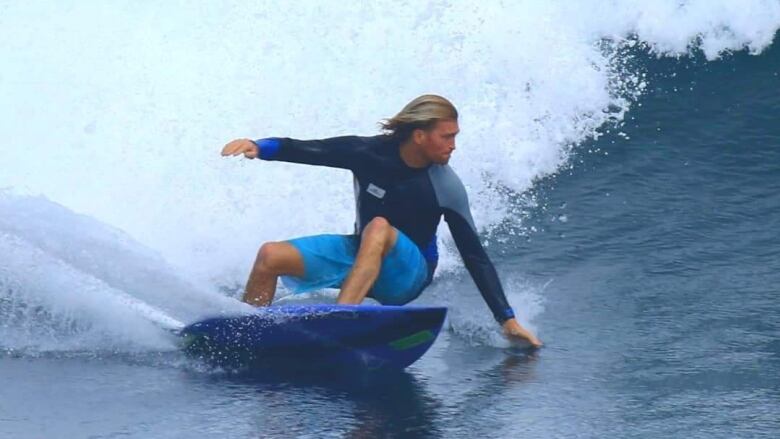
After more than a month confined to dry land without being immersed in the salt and sea, New Zealander Zen Wallis says it feels like he's living in someone else's body.
"It's really strange to not go into the water," the professional surfer told CBC News in an interview by Skype. "My skin feels different; my hair feels different."
Surfing has been one of the casualties of New Zealand's extreme COVID-19 lockdown introduced in mid-March, one of the most stringent virus-fighting regimes anywhere in the world.
Wallis, 28, runs a surfing school in Piha on New Zealand's North Island, about 40 kilometres southwest of Auckland.
Coming at the tail end of the Southern Hemisphere's summer, his classes would normally have been full, he says, and he'd have been in water for as long as there was daylight.
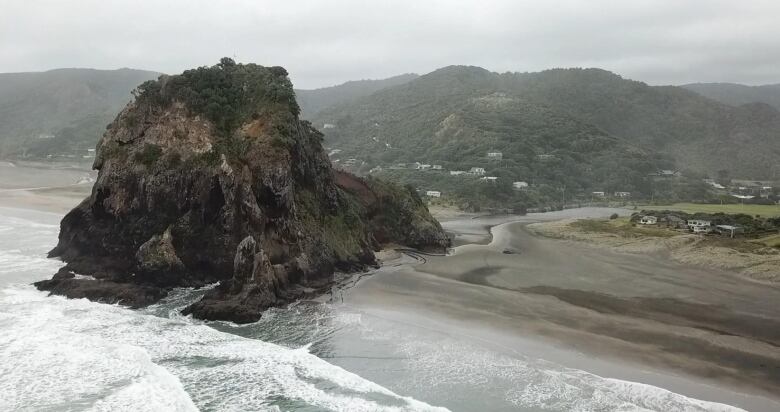
"It was an interesting call to make to actually make [surfing] criminal," he said.
But with the end of the prohibition on surfing and many other activities now just days away, Wallis says he feels the gains in New Zealand probably made the ban worthwhile.
"We may be able to open New Zealand back up if we can 'crush' this," he said of the government's stated goal of eradicating the infection.
Eradicate COVID-19
On Monday, Prime Minister Jacinda Ardern announced that what New Zealand calls its Alert Level4 measures the most intense level would last until end of day April 27, after which the country will revert to Alert Level 3, a level with greater freedoms.
"We have done what few countries have been able to do we have stopped a wave of devastation," said Ardern, who has received widespread praise both at home and abroad for taking early, decisive action against COVID-19.
"The number of cases that each person with the virus passes it on to is now 0.48, less than half a person each. Overseas, the average is 2.5 people, so we have among the lowest number of confirmed cases per 100,000 people in the world."
As of Tuesday, the country of five million people had registered 1,445 cases and just 13 deaths, most of them in nursing homes.
The majority of those infected have also now recovered.
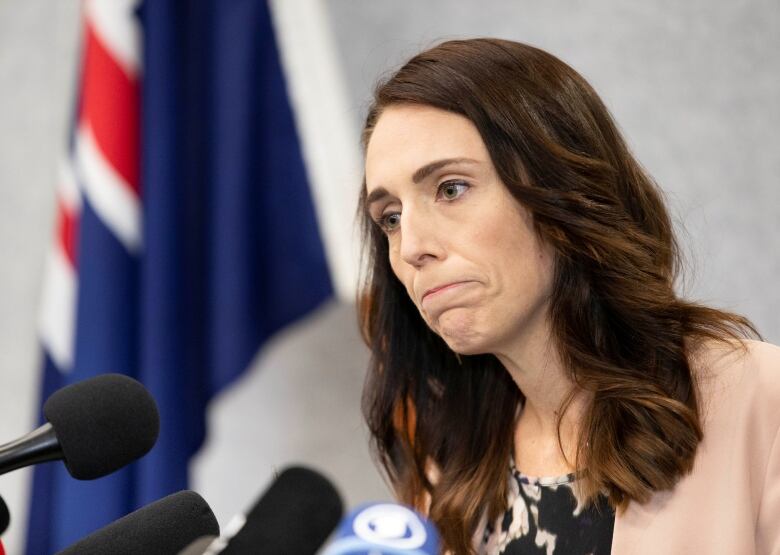
For much of March and April, under the Alert Level4 lockdown, only essential trips to the grocery store and pharmacies were permitted, along with brief trips outside for exercise. Swimming at the beach and surfing were not designated as essential activities, and related businesses closed.
Stringent measures
The measures, in place since March 25, go significantly beyond what most Canadian provinces have brought in.
In British Columbia, for example, restaurants have been serving takeout food, many public parks and beaches have remained open, organizations such as Amazon and Canada Post have been making deliveriesand some retailers have been able to continue with in-store sales as long as they abide by physical distancing guidelines.
Whereas most countries have focused on "flattening the curve" of cases to ensure health-care systems aren't overwhelmed at the peak of infections, New Zealand's government decided early on it would go a big step further and try to wipe out COVID-19 completely.
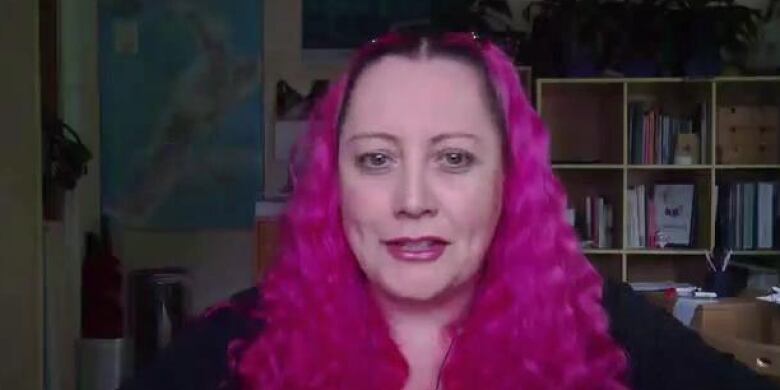
"It's only a viable strategy if you do it early enough. It becomes harder to do it the longer you leave it," said Siouxsie Wiles, an infectious disease expert at the University of Auckland.
Wiles, with striking, bright pink hair and an easy way of communicating difficult concepts, has become something of a national celebrity since the beginning of the epidemicwith near daily appearances on local media.
Measles outbreak
In an interview with CBC News, she said one of the key considerations for Ardern's government in adopting the strictest measures possible, was the interconnectedness the country has with many small Pacific islands that were in an extremely poor position to fight COVID-19.
"We saw last year in Samoa, when we exported measles, how absolutely devastating it was to them. They just don't have the health-care system we have."
In 2019, the smallnation in the South Pacific registered almost 6,000 cases of measles resulting in 84 deaths. Scientists believe the disease was carried there by an infected patient who arrived on an Air New Zealand flight.
After April 27, Wiles says the plan is to keep New Zealand's borders closed to international travellers and to carefully track every new COVID-19 case that turns up, seeking out and isolating anyone who had contact with the infected person.
"If your contact tracing and testing is good enough, then you can minimize outbreaks you can find cases and stop that spread."

While New Zealand health officials have not released the raw data on their capacity to contact trace, several independent experts brought in as consultants have agreed with the Ardern government's approach and that New Zealand is in a position to make contact tracing work.
Incomplete data
Opposition politicians, however, insist the lockdown could have ended even sooner if the government had been more forthright about its ability to monitor the spread of the virus.
"This is a real shame, as businesses will suffer further damage, and that will lead to poor health outcomes as a result of the huge stress this will cause for a lot of people," said opposition National Party Leader Simon Bridges.
Practically speaking, Alert Level3 will leave New Zealanders freer than Canadians in some ways but not in others.
People will be able to extend their "bubble," as health officials refer to it, by having caregivers or cleaners return to their homes, for example, as long as those workers don't also visit other homes.
Schools will open for elementary and middle school students, but the expectation is that any student who is in a position to continue with online learning from home will do so.
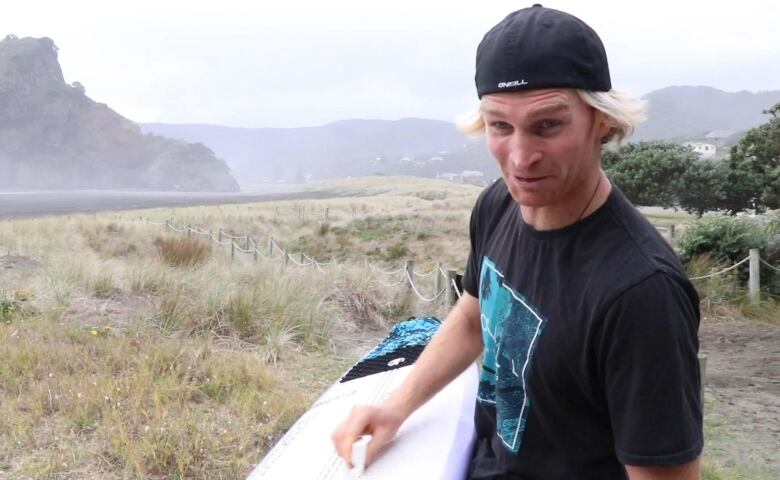
Industries such as construction and forestry will be allowed to resume. Restaurants will not be able to open up for table service, but takeout will be permitted.
And people will be able to head to the beach again to surf.
Relapse possible
After two weeks, if there is no COVID-19 relapse, the prime minister said the nation could move down to Alert Level 2 by the middle of May, which would permit even greater freedoms.
Taiwan and South Korea have had similar success to New Zealand's in cornering the virus, though Singapore, which was also seen as a textbook case, is now experiencing a dramatic second wave of infections after initially relaxing its prohibitions.
Wiles says it is still too soon to know when international flights will resume to New Zealand but she says she expects the first steps may be to resume flying to other nations, such as Taiwan, or those in the South Pacific, that have also virtually wiped out the infection.
"We may end up having countries around the world that are these little islands that you could travel between," she said.
"Going forward, it's an interesting thing how you maintain [a virus free status]."
All of that is heartening news for Zen Wallis, who is planning to be back in the water first thingonce the surf ban is lifted.
"I'm psyched up. I am getting ready now," he said.
Still, after that instant rush, he says, he worries about how long it will take his business and so many others to recover.
"I am sure people are going to want to surf, but obviously, there's no tourism."
"There's going to be a hit for a long time."
Corrections
- A previous version of this story identified Auckland as the capital of New Zealand. The capital is in fact Wellington.Apr 22, 2020 7:09 AM ET














_(720p).jpg)


 OFFICIAL HD MUSIC VIDEO.jpg)
.jpg)



























































































